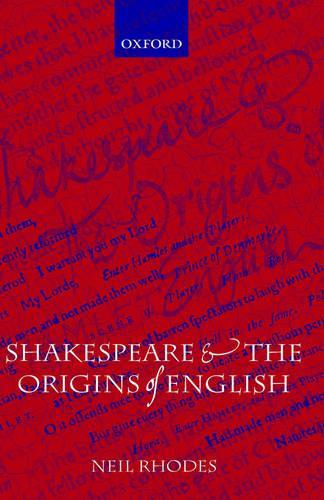Overview
What existed before there was a subject known as English? How did English eventually come about? Focusing specifically on Shakespeare's role in the origins of the subject, Rhodes addresses the evolution of English from the early modern period up to the late eighteenth century. He deals with the kinds of literary and educational practices that would have formed Shakespeare's experience and shaped his work and traces the origins of English in certain aspects of the educational regime that existed before English literature became an established part of the curriculum. Rhodes then presents Shakespeare both as a product of Renaissance rhetorical teaching and as an agent of the transformation of rhetoric in the eighteenth century into the subject that emerged as the modern study of English. By transferring terms from contemporary disciplines, such as 'media studies' and 'creative writing', or the technology of computing, to earlier cultural contexts Rhodes aims both to invite further reflection on the nature of the practices themselves, and also to offer new ways of thinking about their relationship to the discipline of English. Shakespeare and the Origins of English attempts not only an explanation of where English came from, but suggests how some of the things that we do now in the name of 'English' might usefully be understood in a wider historical perspective. By extending our view of its past, we may achieve a clearer view of its future.
Full Product Details
Author: Neil Rhodes (Professor of English Literature and Cultural History at the University of St Andrews)
Publisher: Oxford University Press
Imprint: Oxford University Press
Dimensions:
Width: 14.60cm
, Height: 1.90cm
, Length: 22.40cm
Weight: 0.448kg
ISBN: 9780199245727
ISBN 10: 019924572
Pages: 272
Publication Date: 20 May 2004
Audience:
College/higher education
,
Undergraduate
Format: Hardback
Publisher's Status: Active
Availability: To order

Stock availability from the supplier is unknown. We will order it for you and ship this item to you once it is received by us.
Reviews
full of stimulating, and sometimes provocative, ideas and viewpoints and displays great skill in weaving together different materials and lines of argument. . . . Lively, provocative, and rich in ideas, Shakespeare and the Origins of English is a stimulating contribution to the debate about contemporary, as well as early modern, literary education. * Fred Schurink, Notes and Queries * a lively, readable and thought-provoking book * Richard Dutton, Studies in English Literature 1500-1900 * lively and accessible . . . his arguments offer a refreshing, though not always unproblematic, revitalization of elements of English studies that have lain moribund for decades, if not centuries * Leah S. Marcus, Modern Language Quarterly * Review from previous edition learned, historically capacious, thoughtful, concerned with challenging topics in several related subdisciplines ... The range of his book is admirable and its lack of dogmatism welcome * Russ McDonald, Shakespeare Quarterly *
Rhodes shows convincingly that Shakespeare's literary achievement is most often based on his consistent breaking of accepted Renaissance rules for writing. Rhodes' comments on the neoclassic writers' response to Shakespeare are also very illuminating.... Rhodes offers much to engage the attention. --Choice<br> This is a lively, readable, and thought-provoking book. --Studies in English Literature 1500-1900<br>




